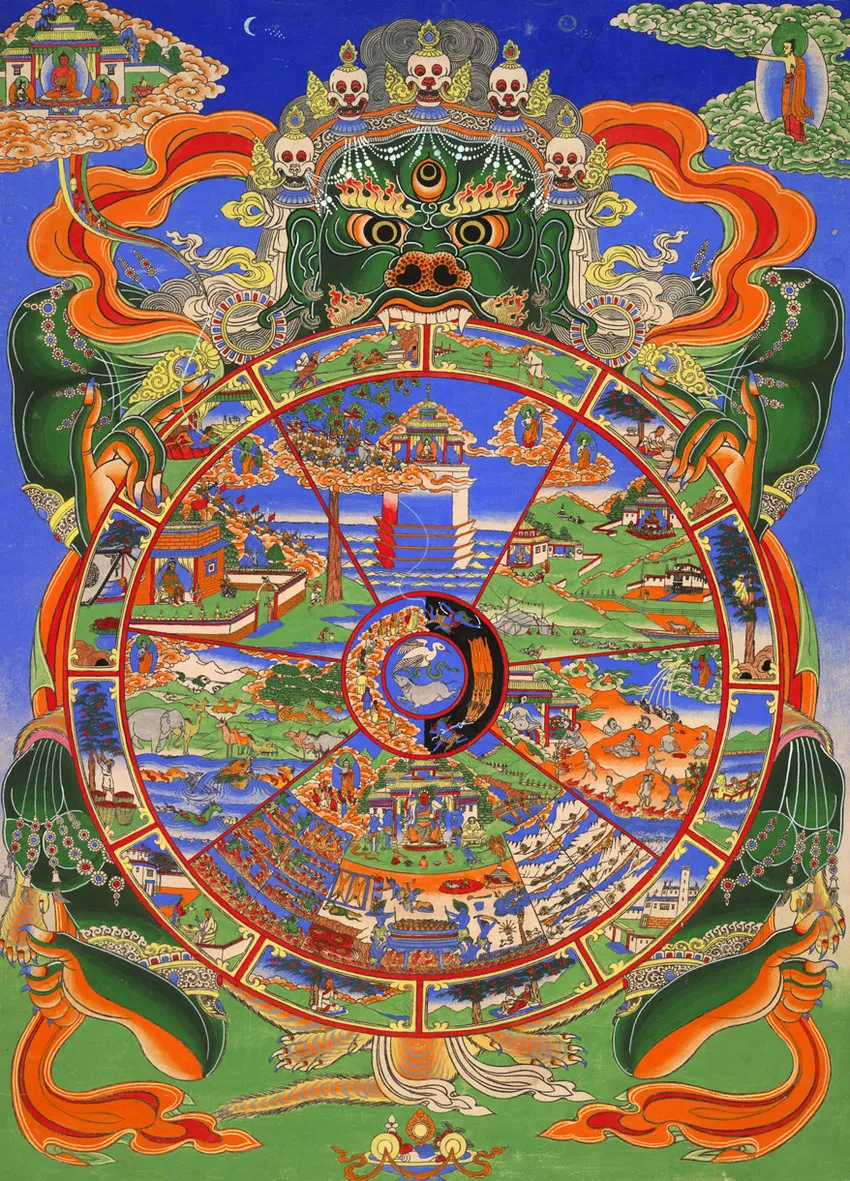Discovering Buddhism, Module 9
Getting to Nirvana
Tuesdays, 7:00pm – 9:00pm
January 6 – February 10, 2015
no class February 3
(5 classes)
Practice Day: Sunday, February 22, 10:00am – 1:00pm
In this Discovering Buddhism class, we will explore the
natures of samsara and nirvana,
investigate the source of
our problems and dissatisfaction, and learn how to move
toward attaining a lasting state of peace and happiness.
The terms samsara and nirvana describe how life is, and how
it could be.
We are all stuck in samsara — our lives seem to be an
endless cycle of ups and downs, hope, fear, pleasure, pain,
achievement and disappointment, where we are perpetually
wanting something else and our happiness and satisfaction
don't last for very long. But things don't necessarily have
to be this way. The Buddha taught that it is possible to
completely transform our lives and experience a state of
lasting happiness, freedom and joy. This is nirvana — a
state of everlasting peace and well-being.
In this module of Discovering Buddhism, we will explore the
profound teachings that clearly outline the mechanisms of
cause and effect. These teachings show us how we create our
own difficulties, as well as how we can break free of the
cycles that keep us locked in to unhappiness and
suffering. We will investigate how we can empower ourselves
with practical tools that will give us the confidence,
commitment and energy for spiritual transformation.
Everyone is welcome!
Although it is part of the Discovering Buddhism program,
anyone is welcome to attend — you do not have to have
attended previous modules.

Srid pa'I khor lo (Wheel of Life). Painting on cloth, twentieth century. Tibetan Collection, Asian Division, Library of Congress
In the Tibetan Buddhist world view, the six realms of
existence (gods, demigods, humans, animals, hungry ghosts,
and hell-beings) are all held in the grasp of the Lord of
Death. In the center of the wheel are the three root
poisons of desire, hatred, and ignorance symbolized by the
cock, snake, and pig, and on the outer rim are the twelve
links of dependent origination by which all causes and
effects are determined. The ultimate goal, shown by the
monks in the left inner circle and the Buddha in the upper
right, is to follow a path that frees one from these
cycles.
Support
Our ability to continue offering these teachings is dependent on the generosity of donors. If you find this online content useful and you are not already attending the teachings in person, any donation would be greatly appreciated. Thank you for your kind support.
Audio Recordings
Registration
Suggested Donation: $15 per class or $65 for the entire course (five classes) if paid in full on the first day of class.
Your generous donations are essential for the continuation of programs like this.
No one turned away due to lack of funds — please contact us to make arrangements.